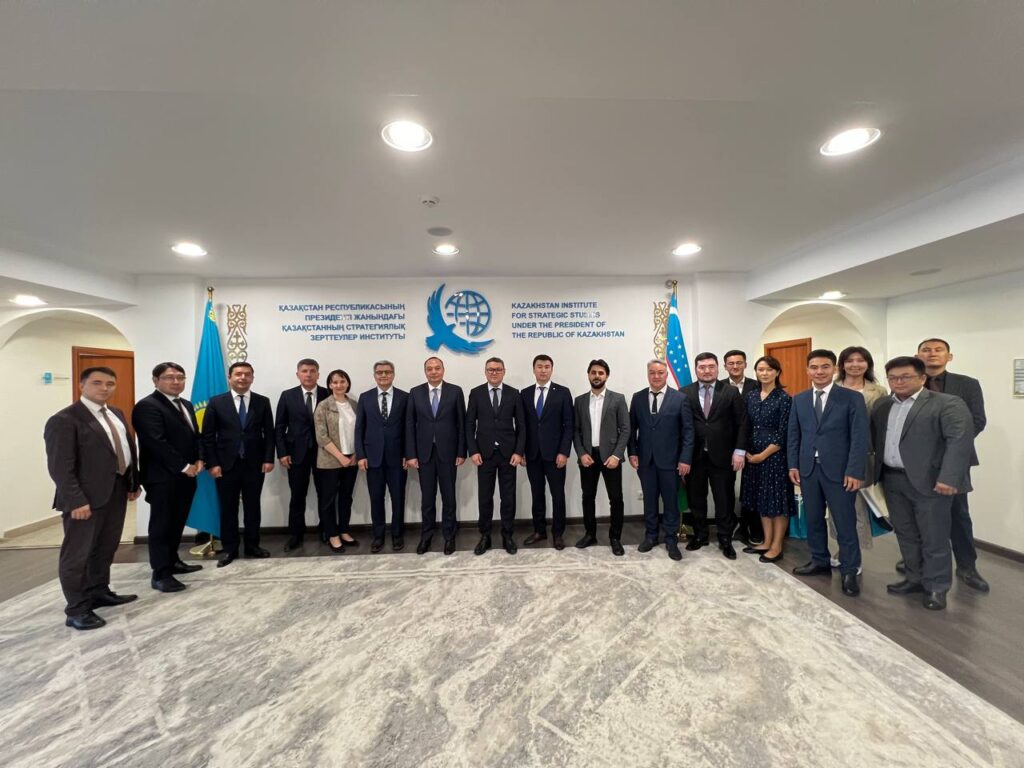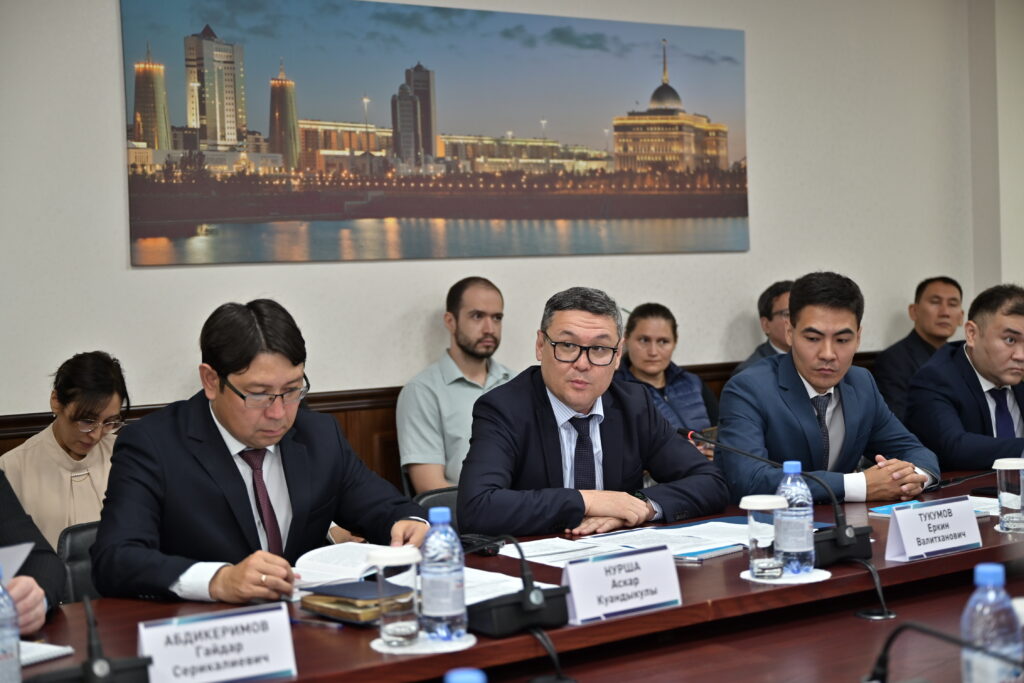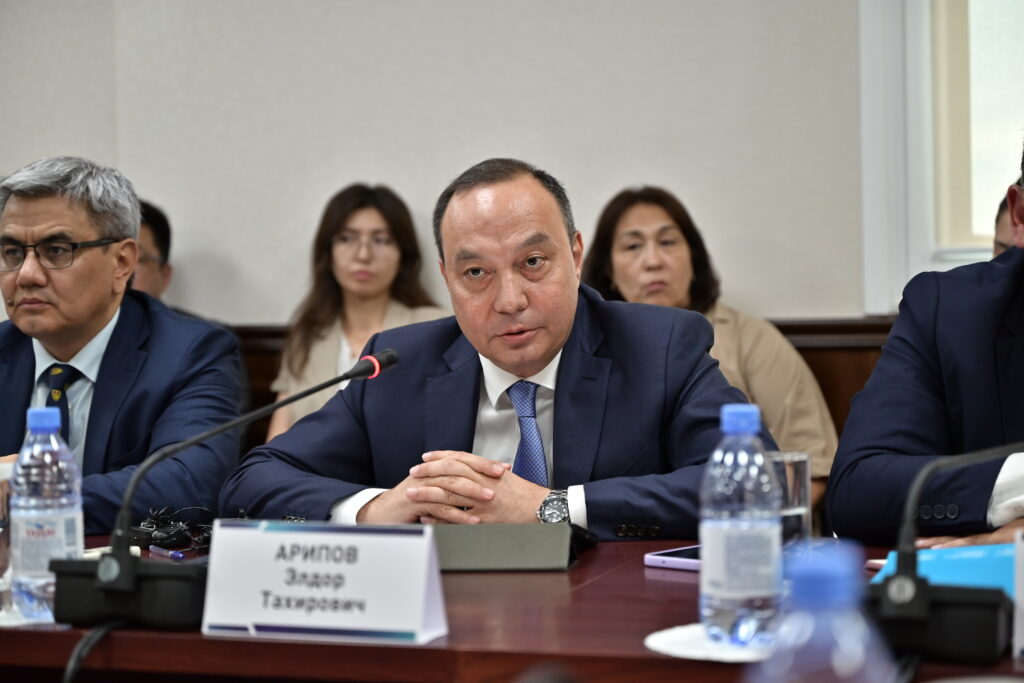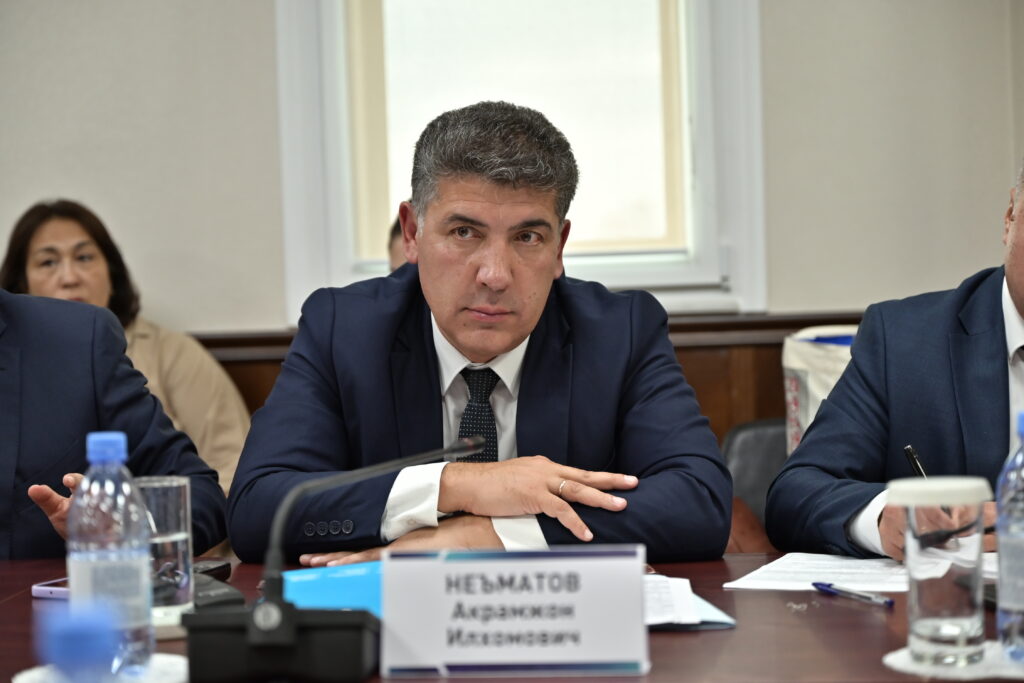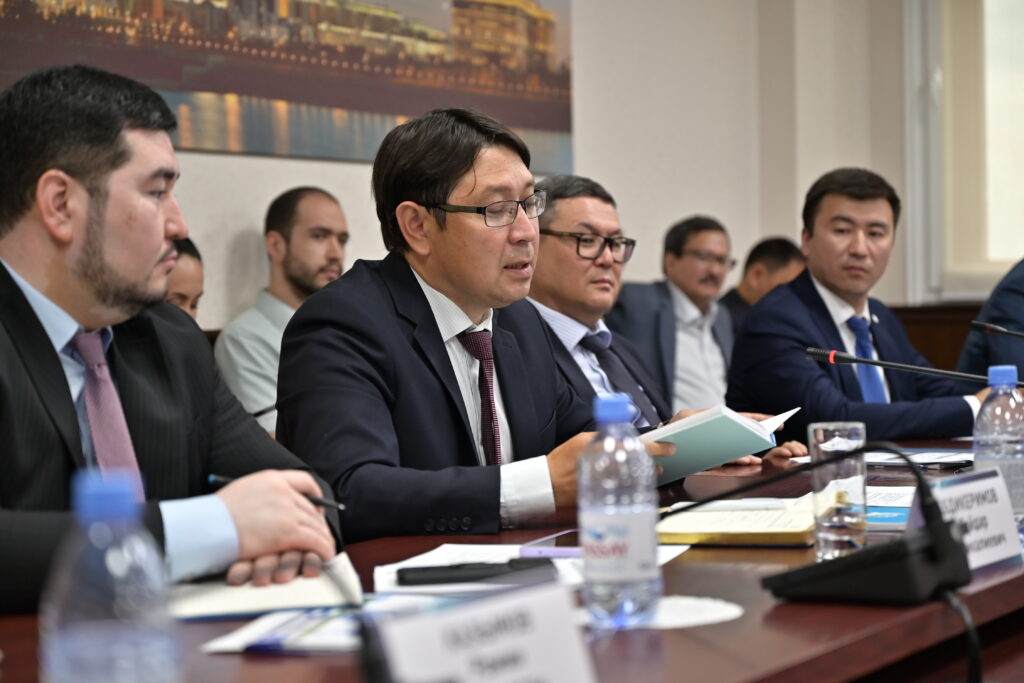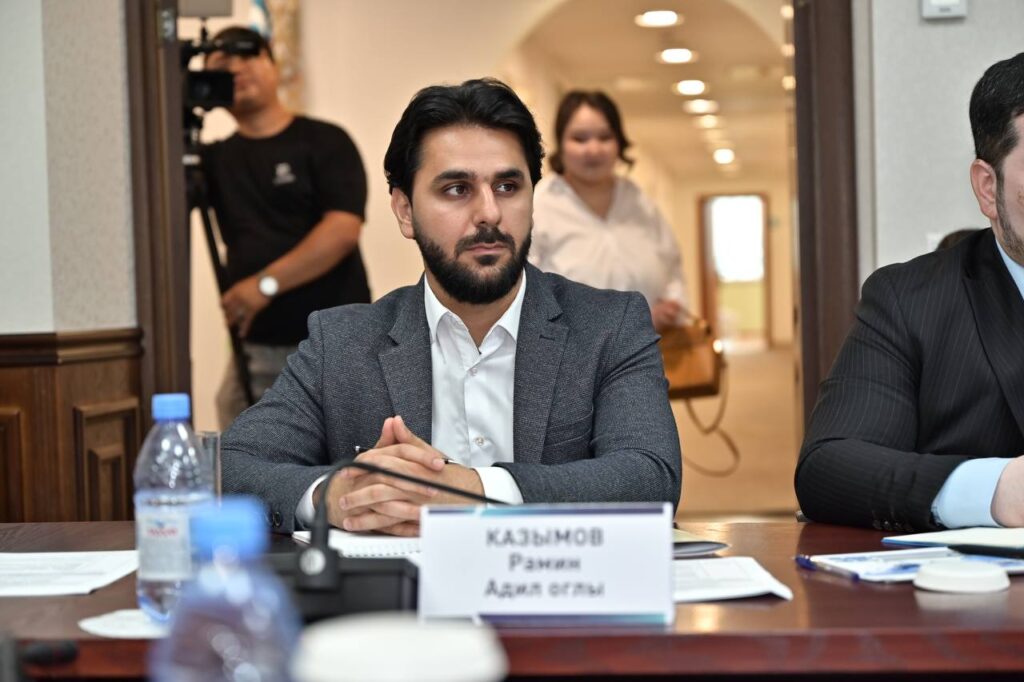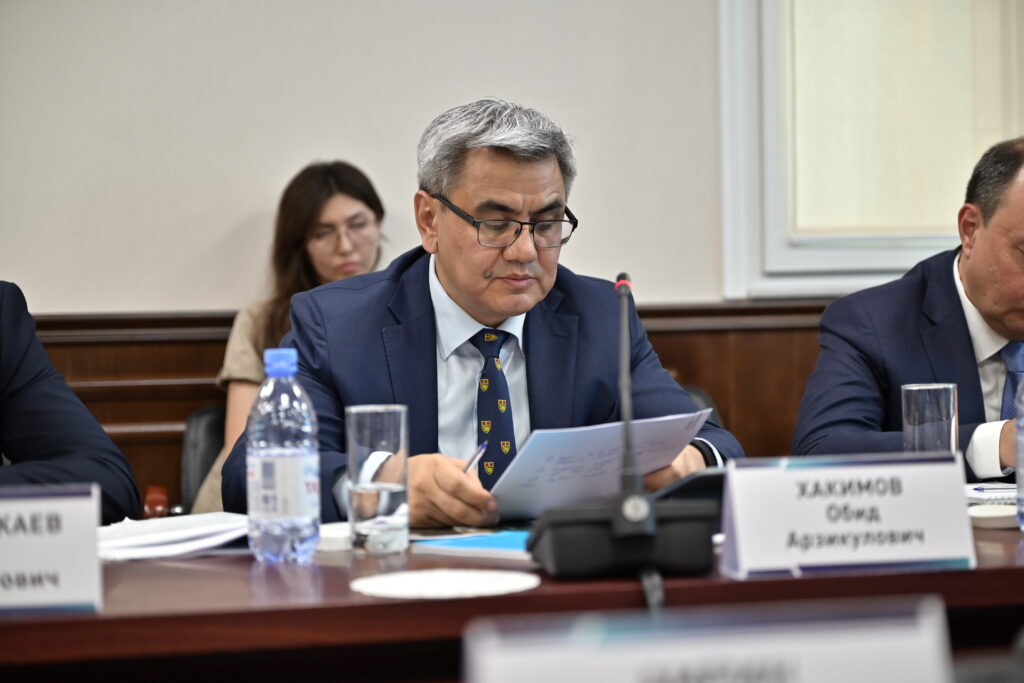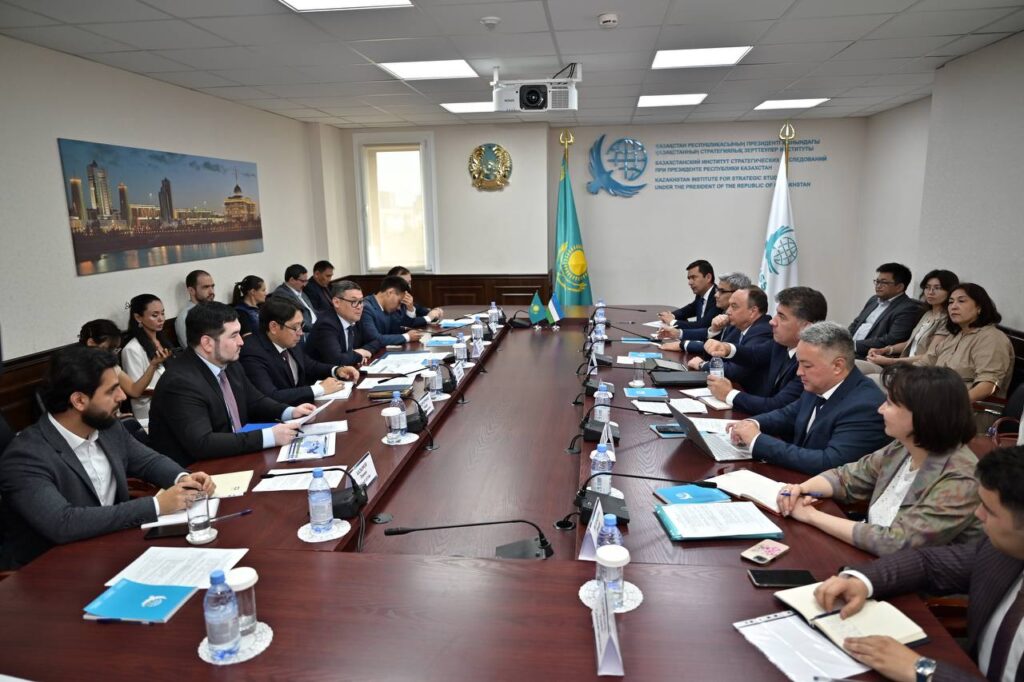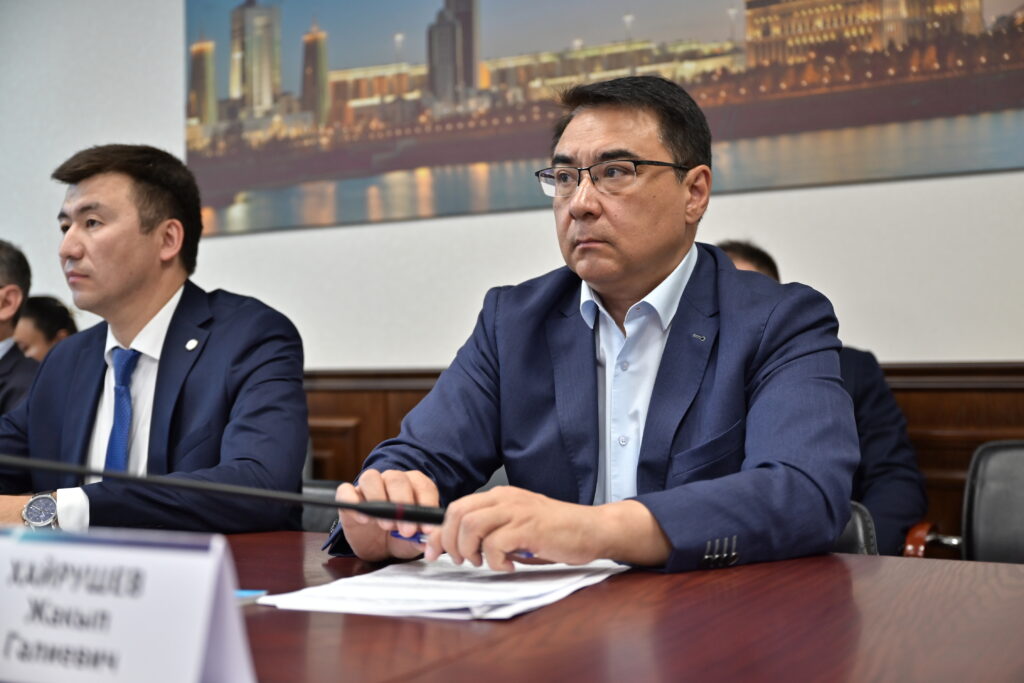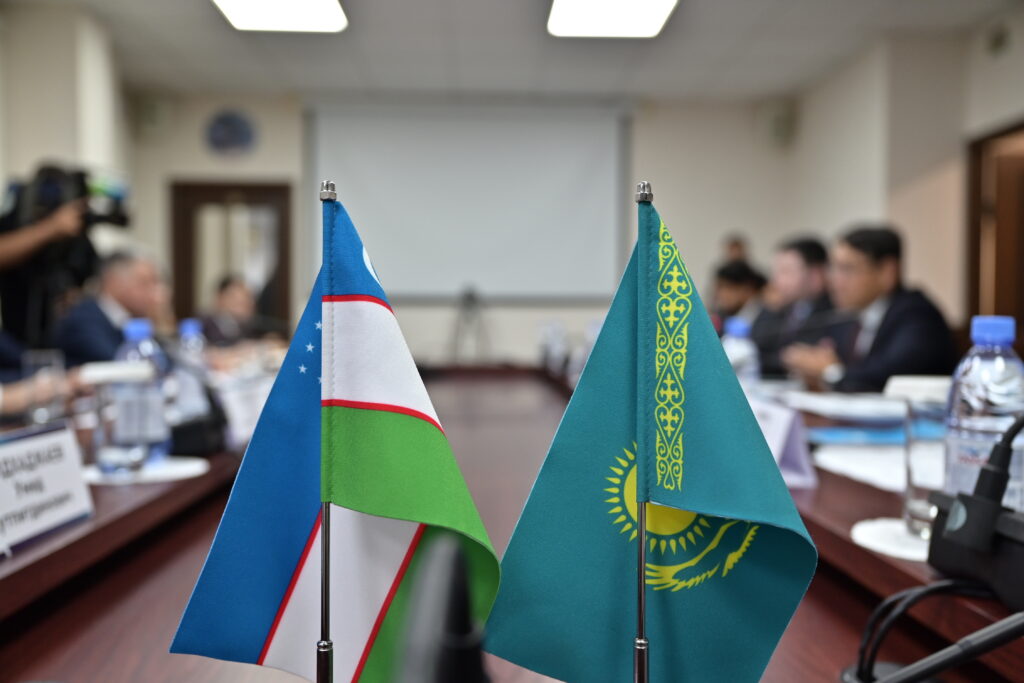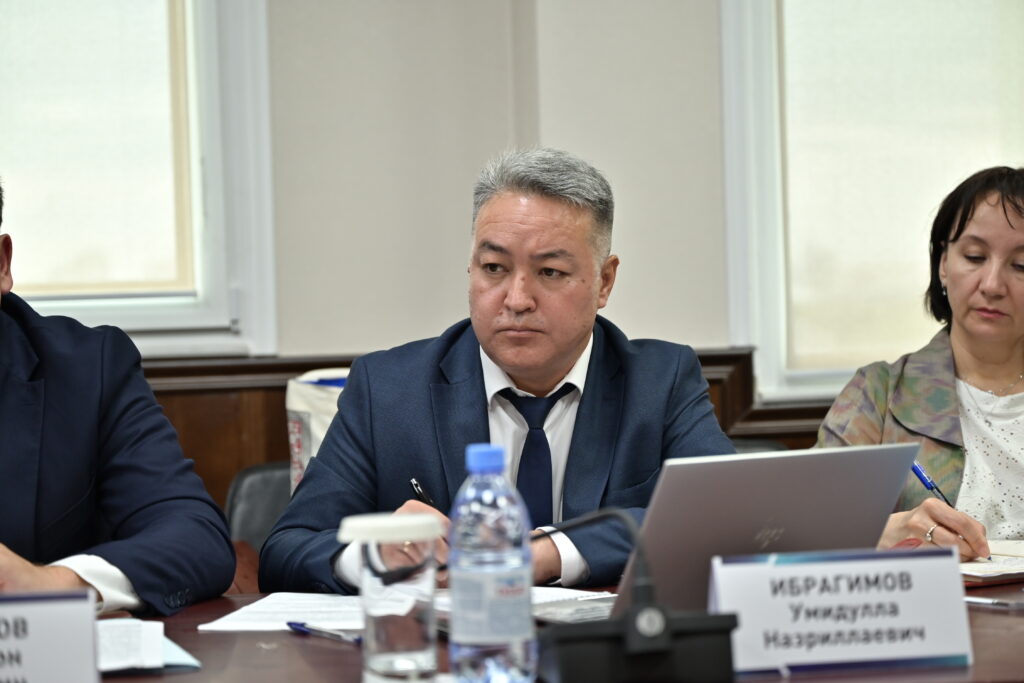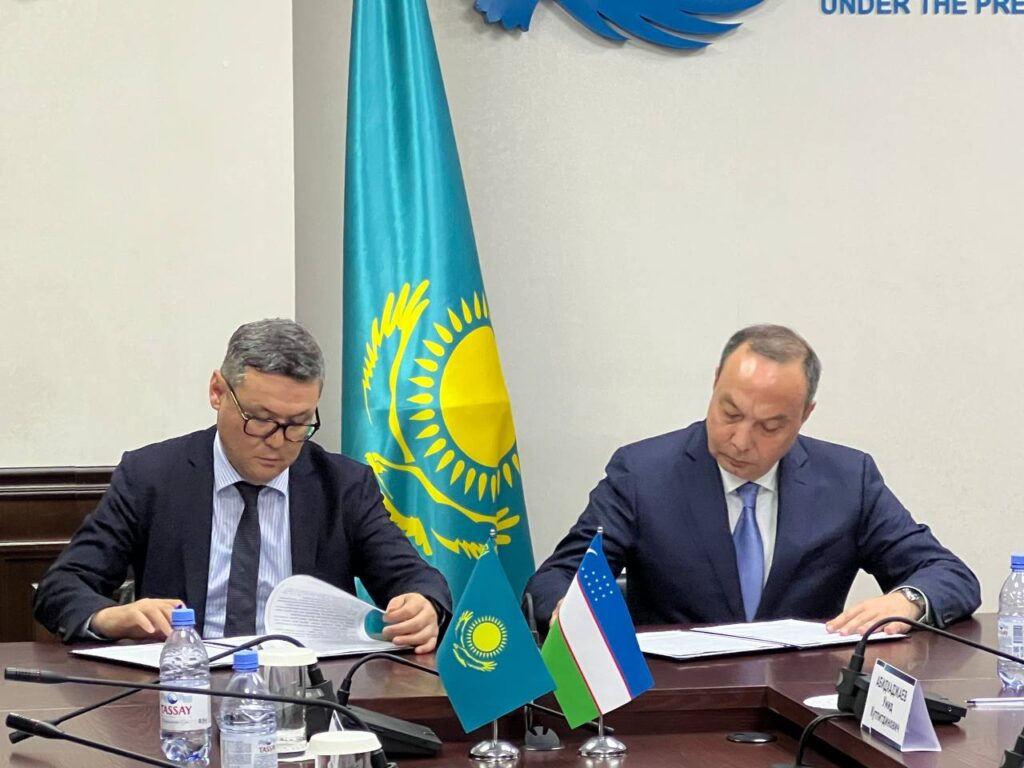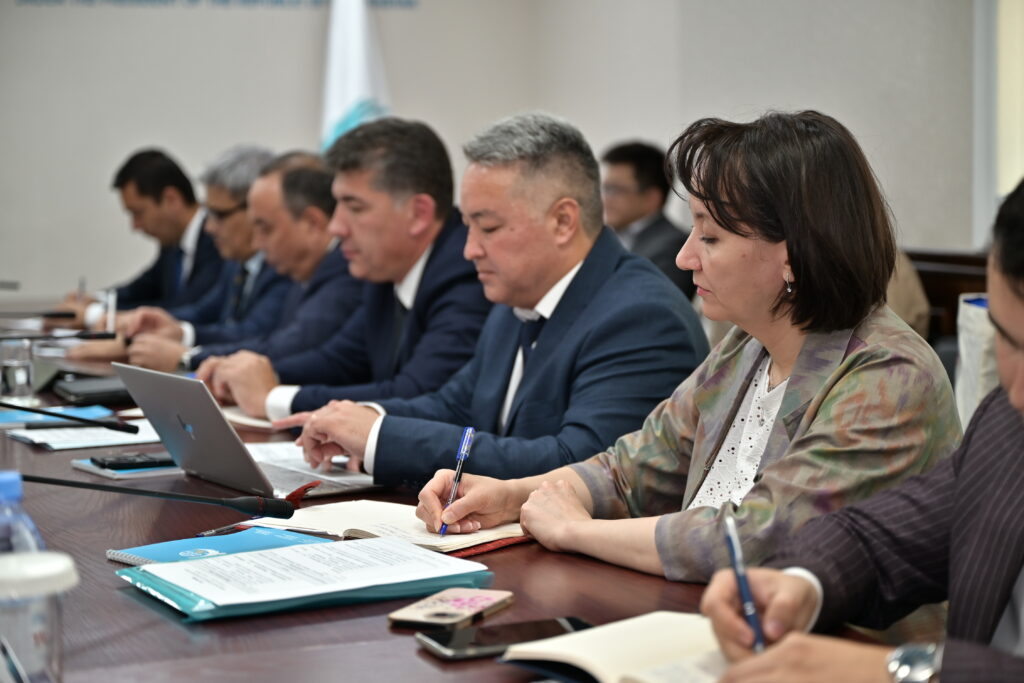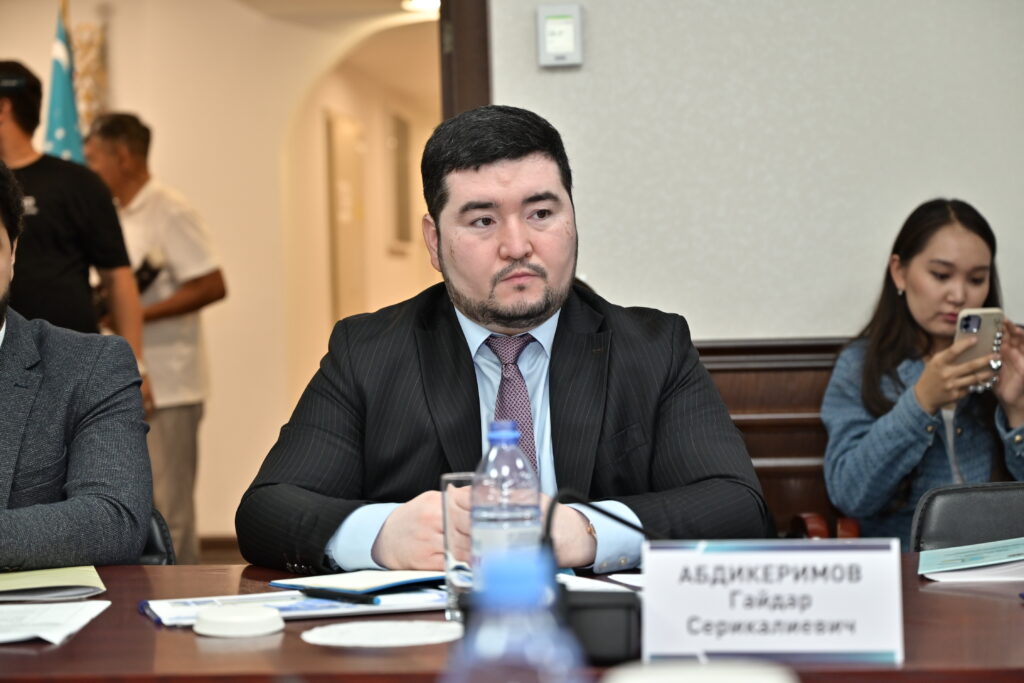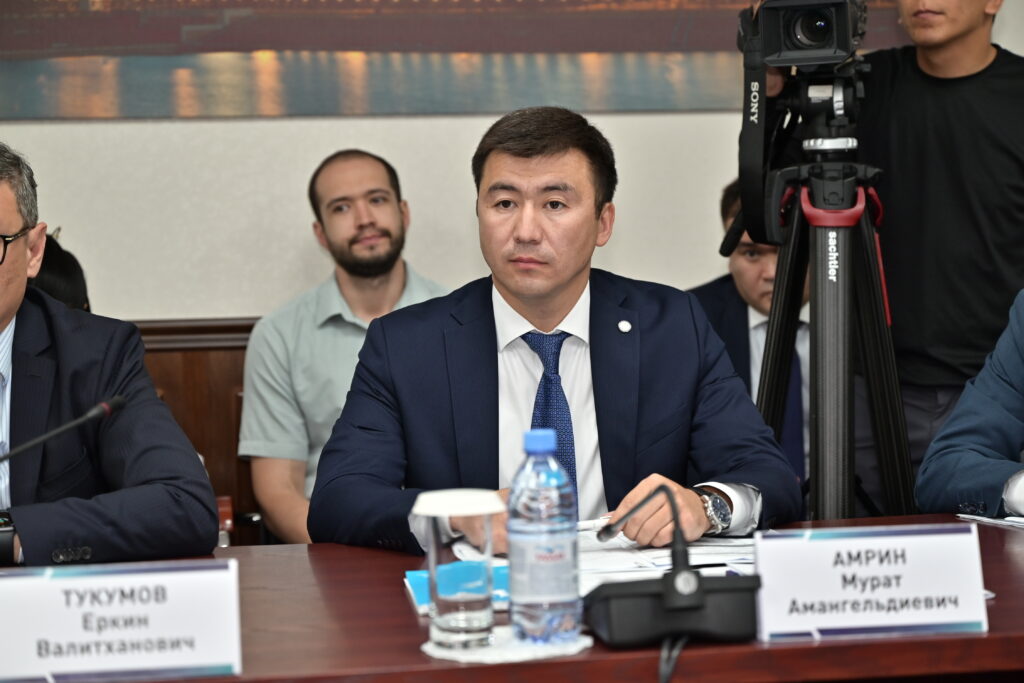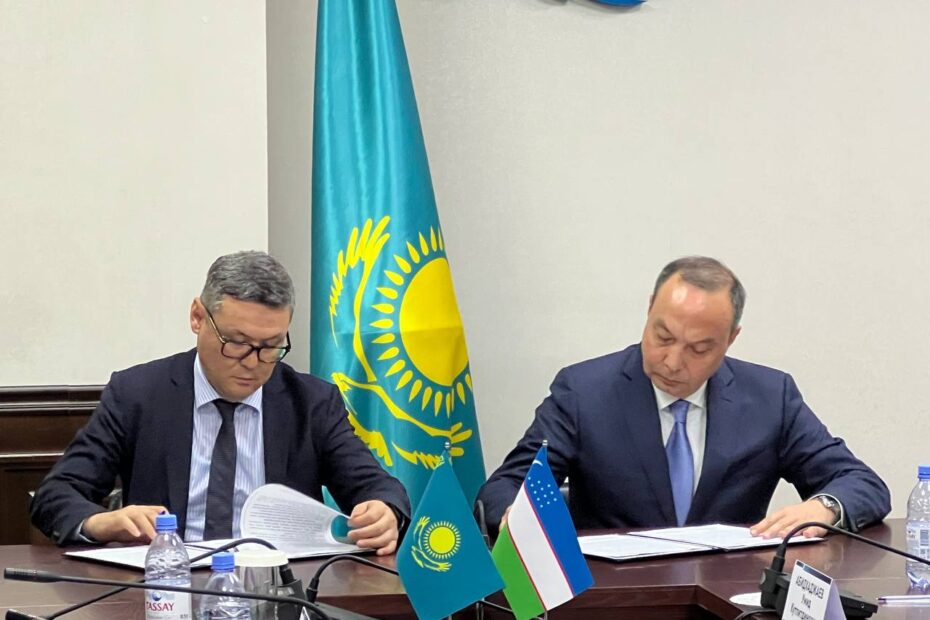On August 2, the Kazakhstan Institute for Strategic Studies under the President of the Republic of Kazakhstan launched the Kazakhstan-Uzbekistan Expert Council. The event was organized in anticipation of the visit of the President of Uzbekistan, Shavkat Mirziyoyev, to Kazakhstan and the 6th Consultative Meeting of the Heads of State of Central Asia. During the meeting, experts from both countries discussed current issues of bilateral cooperation and regional integration.
Yerkin Tukumov, Director of KazISS under the President of Kazakhstan, noted at the opening of the event that the Kazakhstan-Uzbekistan Expert Council is intended to be not only a platform for discussing specific issues but also a forum for generating ideas in the search for effective mechanisms for joint development.
“The Presidents of Kazakhstan and Uzbekistan signed a treaty on allied relations in December 2022. We, in the Expert Council, need to assist the leadership of our countries in determining the future of our allied relations. What will the relationship between Kazakhstan and Uzbekistan look like in 5, 10, or 50 years? What benefits will the citizens of both countries gain from this? What is meant by allied relations? How will the relations between our countries impact the integration of the Central Asia region?” — clarified the goals and objectives of the Council the Director of KazISS.
As an example, Yerkin Tukumov cited the possibility of developing cross-border cooperation by simplifying border control procedures:
“Why not switch to simplified documentation for crossing the border? Why not launch high-speed train routes from Tashkent to Shymkent, Tashkent to Taraz, Tashkent to Almaty, and eventually Tashkent to Astana? Developing cross-border cooperation will have a multiplicative effect and will drive other aspects of interaction.”
In a separate block, the Director of KazISS highlighted issues of scientific cooperation between the Institute for Strategic and Interregional Studies under the President of Uzbekistan and KazISS:
“I propose conducting joint fundamental research. For example, on Central Asian identity. What does this concept entail? What is the identity of our young generation in both countries? How do the youth of our countries envision future development? These studies are particularly relevant given the increasing share of youth. Unfortunately, we still do not conduct large joint studies on the youth of our countries. At the same time, we need to understand the mood of our citizens: where are we heading, and how should we shape a common policy on identity? I believe we have a strong foundation for conducting joint fundamental research,” said Yerkin Tukumov.
He also suggested discussing specific issues of bilateral cooperation in water use and water-environmental safety, developing joint solutions for Afghanistan, particularly in the format of infrastructure projects and agriculture, and formulating recommendations for the governments of the two countries at the next councils.
Eldor Aripov, Director of the Institute for Strategic and Interregional Studies under the President of the Republic of Uzbekistan (ISRS), also noted that the dialogue between the expert communities of Uzbekistan and Kazakhstan is regular and systematic. According to the head of ISMI, the establishment of the Kazakhstan-Uzbekistan Expert Council acquires special symbolism ahead of the state visit of President Shavkat Mirziyoyev to Kazakhstan and the 6th Consultative Meeting of the Heads of State of Central Asia.
“We have high expectations for this platform. KazISS on the Kazakh side and ISRS on the Uzbek side are two leading structures capable of engaging in dialogue on important aspects of bilateral cooperation and making our meetings substantive and meaningful,” emphasized Eldor Aripov.
In particular, Eldor Takhirovich mentioned among the most promising areas of cooperation the development of transport communications and the formulation of a coordinated policy in this area, as well as the creation of a common energy market where Kazakhstan could play a leading role.
The Director of ISRS noted that Kazakhstan and Uzbekistan were the first in the Central Asian region to elevate bilateral relations to the level of alliance. Political dialogue between the countries has moved to the stage of institutionalization in the format of the High-Level Intergovernmental Council.
“Our countries’ positions on many regional and international issues align. At the same time, there are problems that can only be solved together, within the framework of regional development logic. This makes our countries the drivers of regional cooperation,” concluded Eldor Takhirovich.
The participants of the Expert Council identified new vectors of cooperation, discussed mechanisms to strengthen interconnectivity between Central Asian states, and addressed the challenges facing our countries.
The First Deputy Director of ISRS, Akramjon Neymatov, highlighted the deep, systemic crisis in international relations as a key challenge for the region:
“We are witnessing a crisis of trust and a decrease in the effectiveness of international institutions. The world is once again dividing into political and economic blocs. Protectionist measures are intensifying, inflation remains high, and resources are being depleted. The combination of these factors leads to increased socio-political tension.
Amid global and regional crises, trade tensions, and tightening financing, there is a looming outflow of capital from developing countries. In 2023, global direct foreign investment declined by 2%, while in Asia, including our surroundings, it dropped by 8%,” said A. Neymatov.
External challenges are compounded by intra-regional issues, particularly in water supply and energy:
“Today, Central Asia faces a severe issue regarding access to water, exacerbated by climate change. The consumption of hydro resources is increasing due to population growth, rapid urbanization, and active industrial development. From 2018 to 2023, the urban population in the region rose from 9.5% to 16%. According to the UN, by 2030, the urban population will surpass the rural population, and by 2050, the gap will widen by 46% to 57 million people.
As the population and economy grow, so does the demand for energy. Currently, only 2.5% of the demand is met through electricity trade. This is just 40% of the interconnection capacity in the region. This limited volume of trade is due to the lack of a market platform, poor management of the regional network, aging infrastructure, and weak coordination,” emphasized Akramjon Neymatov.
The Expert Council’s agenda included issues related to the development of production cooperation and transport infrastructure. Experts discussed practical measures for advancing regional industrial cooperation and integrating into international production and logistics chains.
The event was attended by representatives from the Institute for Strategic and Interregional Studies under the President of the Republic of Uzbekistan (ISRS), the Center for Economic Research and Reforms under the Administration of the President of Uzbekistan, the International Association “Trans-Caspian International Transport Route,” the Kazenergy Association, the Regional Environmental Center for Central Asia (REC CA), the Scientific and Information Center of the Interstate Commission for Water Coordination (SIC ICWC) of Central Asia, and the National Chamber of Entrepreneurs of Kazakhstan “Atameken.”
The results of the Expert Council’s work will serve as a crucial foundation for further deepening cooperation between Kazakhstan and Uzbekistan, as well as for strengthening regional integration in Central Asia.
For reference: Trade turnover between Kazakhstan and Uzbekistan reached $4.4 billion in 2023. The volume of goods exported increased by 35.8%, totaling 11.1 million tons. Kazakhstan exported goods worth $3.1 billion to Uzbekistan. Major export categories include wheat, sunflower oil, coal, peat, coke, as well as fertilizers containing nitrogen, phosphorus, and potassium, with supplies increasing 2.5 times. There was also an increase in the export of flour and sweet beverages. Imports from Uzbekistan to Kazakhstan showed growth, particularly in the textile and knitwear categories. In 2023, imports from Uzbekistan grew by 4%, reaching $957.8 million.
Several key transport corridors between Kazakhstan and Uzbekistan facilitate mutual trade and economic cooperation. There are direct rail connections used for transporting goods, including agricultural products and industrial goods. Logistics centers are being established at the border to simplify customs procedures and expedite cargo flows between the two countries.
Kazakhstan and Uzbekistan are participants in the Trans-Caspian International Transport Route (TITR), along with Azerbaijan, Georgia, and Turkey. The countries are also working on the “Western Europe – Western China” international road corridor project, which involves the reconstruction and construction of highways, border, and roadside infrastructure.
Kazakhstan and Uzbekistan are working on joint management of transboundary water resources, particularly in the Syrdarya and Amudarya river basins. Both states are committed to the sustainable use of water resources, which includes joint projects for monitoring and protecting water bodies. There are several initiatives to modernize irrigation systems to improve water use efficiency in the agricultural sector. Both countries are involved in the work of the International Fund for Saving the Aral Sea to address water resource issues in Central Asia.
